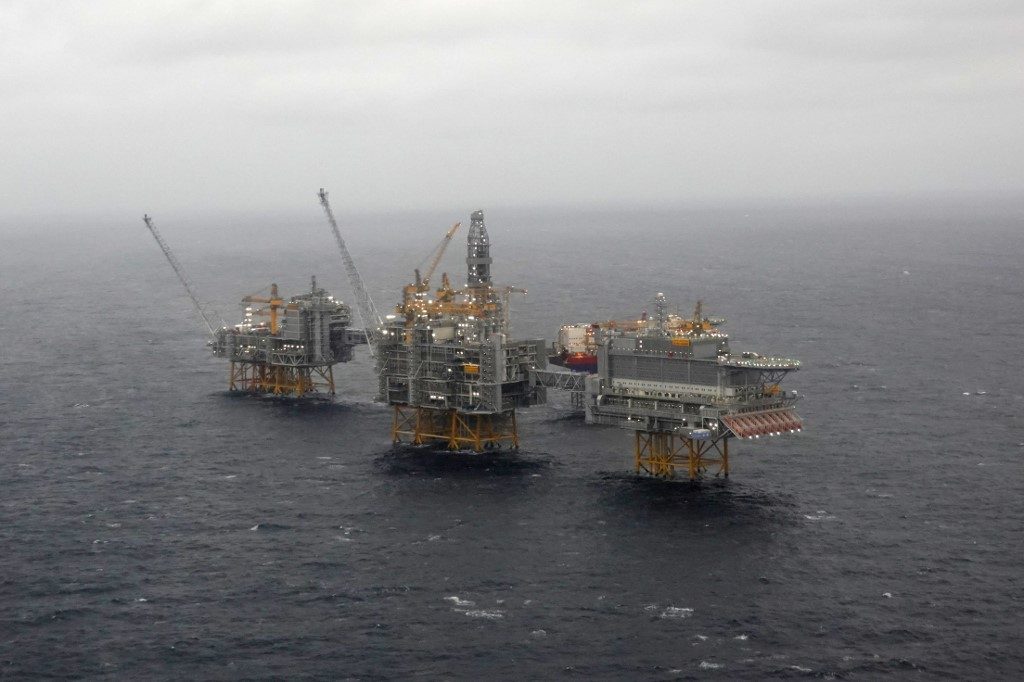SUMMARY
This is AI generated summarization, which may have errors. For context, always refer to the full article.

The coronavirus pandemic that has slammed oil demand and prices is forcing energy majors to tighten their belts on exploration, even if finding new deposits remains essential to their existence.
While the sector is increasingly diversifying into greener energies such as electricity and wind power, its core business remains oil and gas.
“Questions abound over whether it is still profitable to look for oil given subdued demand growth prospects and a low-price environment,” Stephen Brennock, analyst at oil brokers PVM, told Agence France-Presse.
“The answer seems not, judging by the recent spate of massive hydrocarbon asset writedowns.
“Set against this backdrop, I don’t expect a rebound in drilling in the medium term.
“Instead, oil majors will be forced to beef up their green energy portfolios in order to survive,” Brennock said.
Slashed projects
Compared to pre-virus plans, the energy sector has slashed exploration projects in United Kingdom North Sea waters by 70% and by 30% off the coast of Norway, according to research group Westwood.
United States oil giant ExxonMobil has cut its total exploration plans by 30%, or an investment reduction of $10 billion (8.4 billion euros).
European rivals ENI, BP, and Equinor have carried out similar moves, which have in turn hurt subcontractors including French oil services group CGG, which expects revenue to slump 40% this year.
In the United States, more than 30 oil exploration and production companies have this year filed for bankruptcy, according to Texan law firm Haynes & Boone.
If oil prices remain stuck around the current $40 per barrel level, a further 150 such companies could be lost by 2022, said estimates research group Rystad Energy.
“Drilling programs will be hampered in the near term, in particular in US shale areas but also elsewhere, because of immediate cost-cutting measures,” said JBC Energy analyst Raphaela Hein.
“In the past, we have seen that massive capital expenditure cuts to majors’ budgets did not really impact their future production.
“As such, we think that they will continue to look for new fields – maybe to a slightly lesser extent…and keep production within their long-term plans.
“Of course this will contribute to ensuring their survival,” she added.
Hein however said that Arctic projects appeared to be “economically unviable.”
This despite the vast area forecast to have 13% of the world’s oil reserves and 30% of its undiscovered natural gas.
In July, Russia’s Gazprom Neft and Anglo-Dutch giant Shell announced a partnership to explore in the Arctic.
‘Markets don’t believe’
While oil prices rebounded strongly after briefly turning negative in the early days of the coronavirus pandemic, the world’s main oil contracts Brent North Sea and West Texas Intermediate have failed to build on those gains – and last week fell heavily to under $40.
“Markets right now do not believe there is a future for oil,” said SEB analyst Bjarne Schieldrop.
“For how long we’ll have reduced drilling depends on the oil price,” he added.
Even so, the administration of US President Donald Trump in August approved oil and gas drilling in Alaska’s Arctic National Wildlife Refuge, angering environmentalists in the process.
While the oil price crisis is making the realization of such projects unlikely, “political will may still trump” that, said Hein of JBC Energy. – Rappler.com
Add a comment
How does this make you feel?
There are no comments yet. Add your comment to start the conversation.